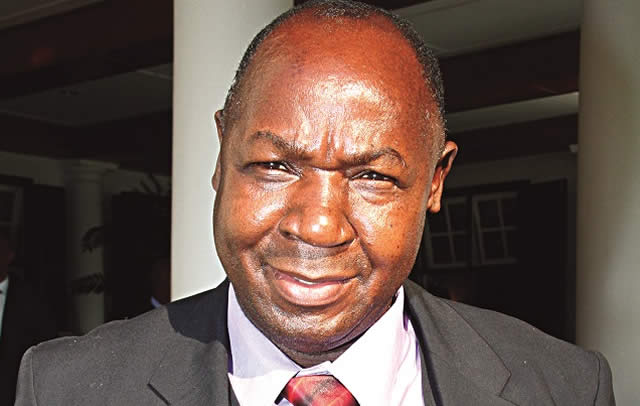$82m boost for health sector

Paidamoyo Chipunza Senior Health Reporter—
The United Kingdom’s Department for International Development (DFID) has availed an $82,1 million grant to the Government in support of the resilient health system programme aimed at boosting women and children’s heath and fighting diseases. A huge chunk of the grant will finance programmes under the Health Development Fund such as improvement of sexual, and reproductive health, and nutritional services for women, adolescents and children, while $2,2 million will go towards strengthening the country’s capacity to respond to disease outbreaks.
Key components of the programme include increasing the number of children receiving Vitamin A supplements from current 624 248 to over one million, reducing the percentage of adolescents with unmet need of family planning from 13 to nine percent and increasing the number of children with severe acute malnutrition that are being cured and discharged from 62 to 70 percent.
The grant also seeks to increase the number of women screened for cervical cancer from 240 000 to 465 000 and to increase the number of survivors of sexual and gender-based violence accessing services within 72 hours per year from 1 600 to 2 300.
Speaking at the official launch of the support in Harare yesterday, Health and Child Care Deputy Minister Mr Aldrin Musiiwa applauded DFID’s continued support in the health sector saying it will not only go a long way in addressing some of the key challenges facing the health sector, but will also assist in ensuring sustainability of gains already made from previous support.
“The earlier support has helped to revive the health sector and this new support should enable the country to continue reducing the maternal mortality rate from the current 614 deaths per 100 000 live births,” said Mr Musiiwa. He urged all development partners to support the health sector through the HDF, which he said has proved to be effective in achieving results.
“We applaud the use of the HDF as this mechanism has encouraged integration of ideas and resources for better results for the health sector,” he said. Speaking at the same occasion, DFID head of mission Ms Annabel Gerry said although Zimbabwe has made tremendous progress towards improving the health sector since 2009, a lot still needed to be done.
She said the country has put in place innovative domestic revenue initiatives but the health sector is still heavily reliant on donor-funding. She said DFID through the latest funding seeks to maintain all gains that have been made in the health sector. “The challenges that are face by the Health Sector require strong partnerships,” she said.
Acting United Nations resident coordinator Dr Mohamed Ayoya called on the Government to increase resource allocation towards social sectors, health included. Dr Ayoya said the UN was however committed to working with the Government and development partners to ensure all resources are put to good use. “The UN values these strong partnerships that enable the people of Zimbabwe to access quality health services at all times as their basic inalienable human right,” he said.









Comments